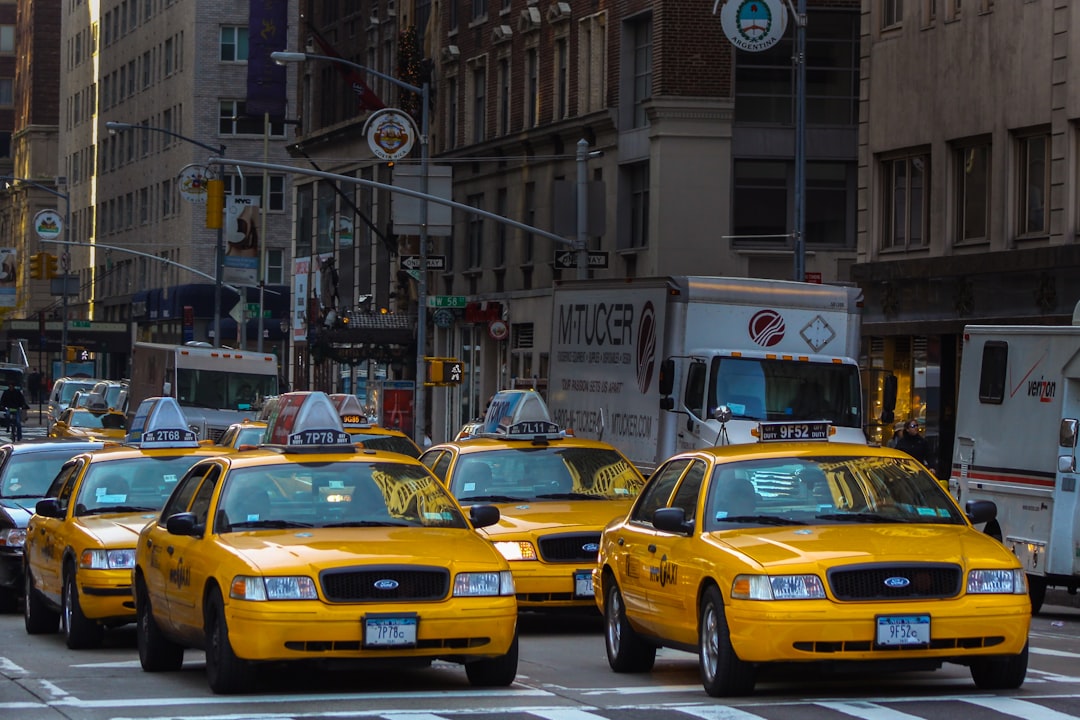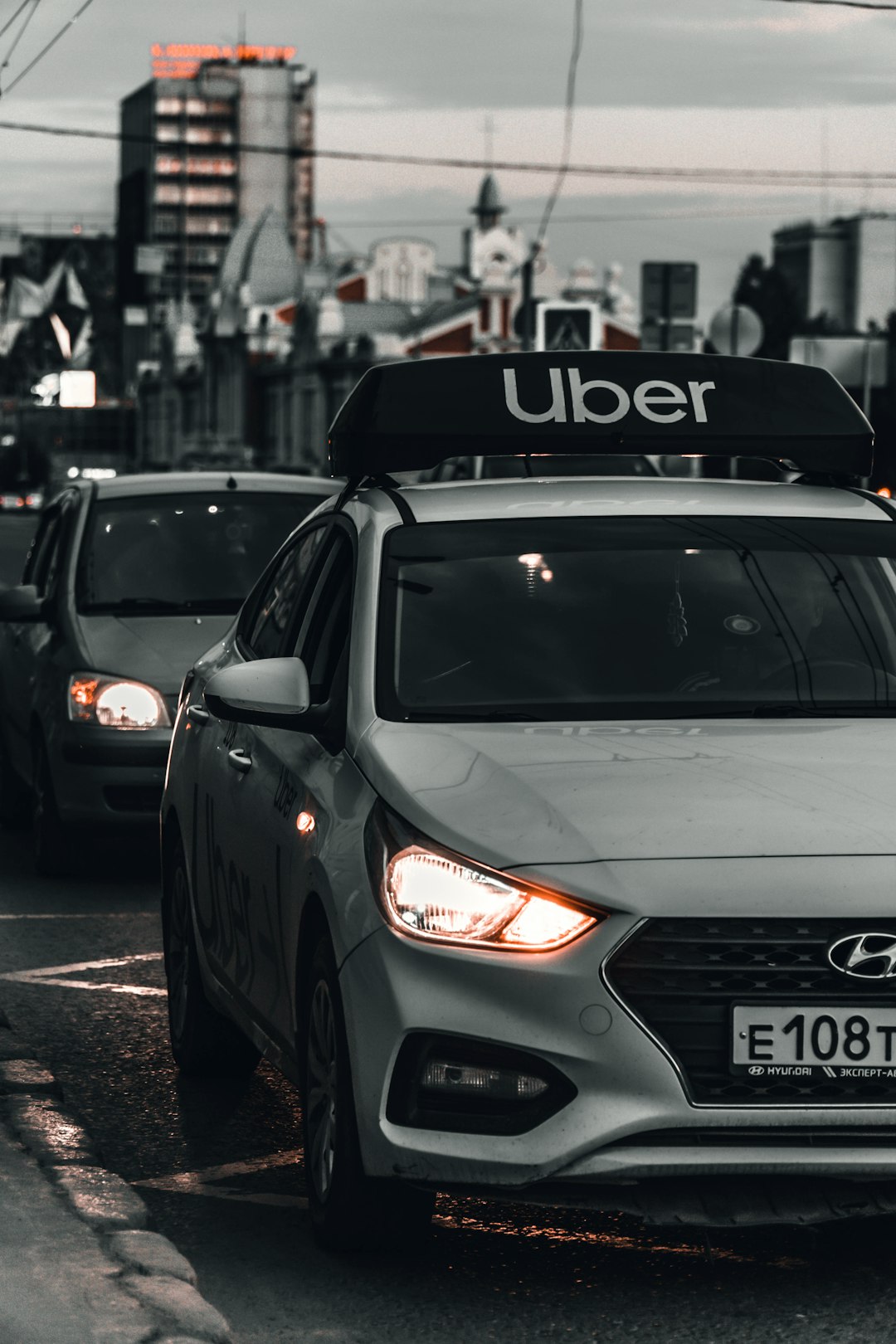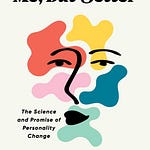By Walt Hickey
Welcome to the Numlock Sunday edition.
This week I spoke to Alison Griswold, who just restarted one of my favorite newsletters, Oversharing, which is all about companies in the sharing economy.
Since pausing the newsletter, Griswold went to grad school with a concentration on sustainable cities, and is coming back with a renewed interest in the ways that tech companies are interacting, improving and undermining different cities. We spoke all about what’s changed, and how the sharing economy has an effect on the world.
Griswold can be found at Oversharing.
This interview has been condensed and edited.
Thank you so much for coming on today. You have just relaunched Oversharing, one of my long favorite newsletters. Do you want to talk a little bit about you know, what drew you to the space to begin with? I know that the sharing economy has come to mean a lot of different things and that evolution has rolled with the times. What consistently fascinates you about this space?
Well, first of all, thank you. I love having you as an Oversharing fan. It means a lot.
I fell into the sharing economy because I had various jobs as a business reporter and through that wound up covering some startups. I like to tell people I'm not really a tech reporter, I'm a business reporter who writes about tech companies from a business perspective. Then the ones I just thought were most interesting was the sharing economy, because this was when it was the early 2010s and Uber was just starting and Airbnb was starting and it was kind of clear they were going to be really big, but they were also completely chaotic, and that was so fun.
That’s how I got into it, but it's just a really interesting space. I think we've talked about this before, but the sharing economy is this really fascinating intersection of what happens when you have a lot of money that's put into a particular area, and then you also have a fundamental rethinking of labor practices and employment practices. Then you also have disparities of wealth inequality and income inequality because more often than not, the consumers are sort of affluent educated individuals, and then the workers are often more working-class, trying to just top off their income for the week, so you have all these factors that go into the sharing economy and collide, and I think that's really interesting.
Yeah, I love that note that you had about how you're not a tech reporter who covers business, you're a business reporter who covers these tech companies, because again, it is so interesting that oftentimes the innovation that these companies have is not necessarily a technological one, but rather some combination of cloud services and also just labor and interacting with their labor in unconventional ways. It’s been a little bit since you went on hiatus, so what have you seen in the interim on that?
Yeah, before I went on hiatus, I wrote a piece for Oversharing. It was something like, "What even is a tech company anymore?" Because it was that time when Casper was going public and everyone kept covering it as "Casper, this tech company," and I was just like, "They sell mattresses online. They're not a tech company. They're a mattress company that sells online. When did everything that has a website become a tech company?"
That's funny. They’re not even technologically-enabled mattresses, they're just a delivery company.
Yeah, so I think at some point we started to conflate tech-enabled with tech company because a lot of things, especially now, right, we live in a digital economy, everyone is on their phones, everyone has the internet, most things that do well from a business perspective are tech-enabled in that they have a website, or an online ordering option, or there's some sort of software component, but that doesn't mean the product or the core business is tech.
I imagine that one reason for that appeal is that it's probably a lot more intriguing to a future IPO to be a tech company, but the facts on the ground, again, you approach it from a business side and you look at the balance sheet and these are not tech companies.
Well, and it's better for fundraising. I mean, this has been well discussed now, but part of the, I don't want to say "innovation," but part of what WeWork did so well was that it marketed itself as a tech company and that enabled it to raise a lot of money from venture capitalists and this sort of flush Silicon Valley ecosystem, which is where the money was, and fundamentally WeWork is property business, but I mean, we don't know, right; this is counterfactual, but probably WeWork would not have raised as much money if it had gone to traditional financial institutions and said, "We are raising money for a shared office startup." It went to Silicon Valley and it said, "Oh, we have this innovative new tech idea. Please give us billions of dollars."
Yeah. It seems like it's a hustle. One thing I've enjoyed a lot about your coverage has been you went to graduate school and you studied sustainable cities. What do you bring in from that towards the new Oversharing relaunch?
Yeah, it was a great program. I needed some time off from journalism to decompress during the pandemic and had been interested in going back to school for a while, and was thinking that a lot of the things I wrote about were fundamentally urban platforms and that they tend to work well in dense cities with a lot of people, and so I thought, "I know about business because I've covered it, but I don't know a ton about urban planning, and what an interesting thing to study and have this other lens on it," so yeah, it was great. There were a lot of classes on governing cities. A lot of it was sort of urban theory: "What is a city? How do we decide who has a right to it? Who has a voice? Who gets listened to?" Very sort of sociological framework, but I'm excited to bring that to Oversharing because I think Oversharing’s always been interested in these cultural, social questions that are raised by tech, and it's nice to have more of an academic grounding in ways to approach it.

I want to spend a little bit of time here because that's a really fascinating angle. I feel like I'm kind of reminded of one of your bigger stories about scooters breaking down and how they just weren't built for the wear and tear of an actual city. We've all been in an Uber before where it's a Toyota Corolla and it's seen some wear and tear. You always contrast that with the cabs in New York, which are specifically expensively designed, but built to be infrastructure for a city.
A lot of these new tools and replacements for infrastructure are actually kind of cruddy at doing that. They're not made with enough care that infrastructure demands. From your experience, what are some ways that now we see cities and startups attempting to create new infrastructure where there might not be that much “there” there?
Yeah. I have two points on this. One is a thing I used to think about a lot, but didn't write about that much, was like you say, with scooters and Uber, these are for-profit companies offering transit services. Part of the reason they're able to do that is because they rely on public infrastructure, right?
Uber and scooters couldn't operate without roads and sidewalks and all these things, but historically, we haven't expected these companies to pay into maintaining and supporting that infrastructure. So I think that's an interesting urban question, right? Should companies that profit off of public infrastructure also have a duty to contribute to maintaining, supporting and potentially expanding that infrastructure? That's something I would like to look at more.
The second thought I had when you asked that is I'm doing something for tomorrow about this urban intervention in Los Angeles. It was just a fun story that was on NPR recently about people going around and painting crosswalks where they felt they should be.
I saw that!
Yeah, so this was something I studied in my program. It's called DIY urbanism or tactical urbanism. It's defined as unsanctioned interventions into the urban landscape, usually by a group of concerned citizens in response to perceived neglect from authorities.
Traditionally, DIY urbanism is thought of as sort of fun and creative, but also, there's obviously tension because it might not be legal, there could be repercussions. I was thinking when scooter companies started, they didn't get permission, they just put scooters everywhere. I mean, in a way, that was also a DIY urbanism move, but the difference is it was for profit. Why do we get concerned? Why is it that a group of citizens is potentially going to be punished for doing something not for profit that is intended to improve the community versus a company is able to get away with doing the same thing, but explicitly to make money?

That's really insightful. Both of those points remind me of a lot of the early tension around Uber and Lyft being at airports. They wanted to be in the cab lines. They wanted to get good drop-off locations. The airports were like, "You got to pay for that, buddy." These municipal institutions were designed alongside cabs in mind where they do get to wet their beak by virtue of offering these services to pick up and whatnot.
It was just so interesting to watch eventually, depending on the city, either they got a good deal, a bad deal, you have to slip all the way out to a whole different LaGuardia terminal or something like that. It's been interesting to watch the evolution of how these really go from being a tech company to like a government liaison company. I love watching your newsletter kind of cover that shift.
Thank you. Yeah, and it's not to say that the existing models or way the government does things are always right. I mean, a lot of times, they're not, or they could be improved on, but I guess the point is that every time we do one of these things or a company does, that is a choice, and that says something about what we value as a society, and what we think is the way a city should run and be functioning. To answer your question, I'm excited to have done the program and be able to apply that lens to these companies because I just think it will lend itself to a richer discussion.
Yeah, I like that a lot. Actually, you had a post just last week about how the taxis are now on Uber, which years ago, would've been completely, incalculably not in the realm of humanity possibility.
Yeah, I think it's borne out of supply problems. It's been pretty well reported that Uber went through this fundamental transformation during the pandemic, which was that everyone was locked down, people were afraid of taking cabs, and also, drivers rightfully were worried about transporting around people who might be sick. So they just saw this massive shift in their business, from most of the business revenue being rides to most of it being delivery, which made a lot of sense because everyone was home, everyone needed food and groceries and essentials and Uber was able to provide that service. But then, of course, people got vaccinated, things started to open up, there's COVID fatigue, the world came back online, and suddenly, people wanted to take Ubers again. And there just weren't enough drivers, so classic supply and demand, prices go up, wait times go up, people are unhappy. Uber has been on a campaign for almost a year now to try to get more drivers on the road.
They just struck this honestly hilarious deal in New York to bring taxis onto the app, which is arguably good for taxis, we'll have to see how it plays out, but if it gives them more choice, generally more choice is good. But yeah, just after years of denigrating the taxi industry, it's funny to see that in this moment of supply constraint and need, that is where Uber's turned.
Yeah. It's like these companies, there's some more scrutiny under them now. You just have to turn on any streaming service to watch a lovely story about a founder of one of these companies one of these days. It is so interesting about how they took something that was very, very simple, which is like, "I need a ride somewhere and I'm going to pay a taxi $15 to accomplish this task," and then you had a post about the law in Washington state that was just, the jargon here is getting really out of hand.
It took something that was very simple of just like, "I'm going to pay a taxi cab driver to drive me to a location," to, "I'm going to use a ride-sharing service that will offer compensation to a individual to take some passenger platform miles through a transportation network company." That is an innovation in some regard, no?
Yeah, it's a fancy way of redefining the taxi meter.
Washington state, like you said, recently passed this law that sets a pay floor for ride-hail drivers, which is good because there's been a tension for a while in the sharing economy where workers want better wages and better working conditions and the companies say they also want that. Whether you believe that is up to you to decide, but then they say, "Our hands are tied. We can't provide these benefits because if we were to do that, it would be interpreted by regulators as us being an employer, and we can't have an employer-employee relationship, so we are legally constrained from improving the situation," and so this bill is one of the ways that they're now doing that. They're creating laws that mandate benefits and higher standards without making them employers.
But yeah, there was a section of the bill at the very beginning, which just defined a lot of terms, and it is quite jargony, but it's also, I think, it's very helpful because it's hard to have an informed conversation about something if you're not able to talk about it in common language. I mean, we see this in politics all the time, right?
Yeah.
While it's jargony, it's helpful to say, okay, when an Uber trip happens, what are the different parts of that, right? What time should a driver get paid for? Because there's the time the driver's on an app, but they don't actually have a passenger for all of that time. Sometimes they're just waiting for a job to come in. There's the time when they've accepted a job, but the passenger's not yet in the car, and then there's the time when they pick up the passenger, so you have those three distinct segments. Which of those should the company have to compensate the driver for?

Got it. It definitely seems like, again, it's overcomplicated, but it also seems like that's been a broader shift in the overall economy. You've seen unionized workforces oftentimes dissolve into contractor-based systems where rather than having all of your suppliers be either in-house or through a dedicated network, the way to get into the middle or upper class in America is to become a contractor. Then it does seem like they took a lot of that mentality and they just tried to make it into like, "But what if we had that, but also you were still in the working class?" It feels like they're really trying to do some language shifts that are fascinating to watch in real-time, I would say.
Yeah, also, I just think it highlights disparities in the labor system. Personally, I feel like a lot of worker classification is a class issue, but I don't mean that in the way class is often thought of.
What I mean is when you're in a white-collar job, you get paid a salary, right? You're expected to show up to work. Maybe your contract says you work 9:00 to 5:00, or something like that, but often that's not enforced, often you can just go to lunch or take a break. No one's stopping the clock when you get a coffee, right?
If you're an Uber driver, every minute is materially important to when you're getting paid and when you're not getting paid and that's just such a different way to relate to your work.
Yeah. It also just seems like it's a step back in terms of worker relations in the country. But backing out from this topic a bit, I'm interested in how you spend a lot of time studying cities, you spend lots of time looking at these sharing economy firms. What is a city that's doing well at this? You always kind of see situations where cities will completely screw up. As a result, their downtowns are littered with abandoned scooters. But I guess, is there anybody or any municipality that you had a chance to look at that you think is doing all right, or at least going in the right direction?
I think Paris is often talked about as being among the most ambitious in terms of getting rid of cars. Paris under Anne Hidalgo, the mayor, has very aggressively expanded cycling lanes, put money into bike repairs and helping people get bikes and all these sorts of things. They've been very creative with their initiatives.
London has put up a lot of cycling lanes. Just in the past, I mean, in the three years I've been here, there used to not be any cycling lane on the main road outside my flat, and now there are, so that has happened while I've been living here. I've seen it go up.
Then I wrote my dissertation for the master's program on the New York City Open Streets Program, which was really interesting because this was a program where New York fairly early into the pandemic decided they would cordon off some sections of streets and allow them to be open for dining and pedestrianized activity to sort of create more space for social distancing and outdoor activities. The thing I saw from, I looked at two of the open streets, and the thing that became very clear is it was just so scattershot. One was doing really well because it was totally community run in Jackson Height, Queens, and people were extremely engaged.
I went to that one.
Yeah, it's enormously successful, but it's not a testament to New York City, it's a testament to the people who've made it happen and are still making it happen.
Then I looked at Park Slope 5th Ave., which is where I used to live, and that one's also successful, but for different reasons; it's being run by the local business improvement district, and it has a much more explicitly commercial focus, so it's been successful in terms of having a vibrant, commercial life, and a lot of dining, but people on 5th don't feel ownership of it the way that people in Jackson Heights feel that the street is really theirs and a product of community efforts.
Then you have others that have completely fallen by the wayside because they don't have the business resources, or they don't have the engaged community to make it run, and the city really hasn't been engaged in providing that support, so it was just very interesting to look at this program and see that there was such a wide variety of outcomes because of lack of... Basically, the city said, "We've given you a stamp, you can do it," and that was it.
Yeah. Interesting. Yeah, I would say each borough is different. I live in Queens and I feel like, again, the Queens mobility stuff and new city stuff and new bike lanes and stuff, it feels like it's accelerating at a clip way quicker than any of the other boroughs, which has been of nice. I think there's a lot of community support for it.
I guess just backing out a bit, where do you see the newsletter going in the next couple posts as you get it regoing again?
Yeah, we're finishing up the launch period right now, which is a faster pace of production than it will be. Long-term, it's going to be three posts a week. The idea is that the core Oversharing, as people know it and have gotten it for a long time, a couple topics, maybe a short essay, links at the bottom — that will remain free to everyone because it's important to me that people be able to access Oversharing and people who've been subscribing for a long time don't feel cut out by it going behind a paywall; but also, we all have to make a living. Content can't be free, so some of it will be paid.
There will be more of an urbanism focus. There will be new posts as they happen. I'm casting a wide net for interesting people to interview, to do Q&As with. If that's you, please get in touch, email me at oversharingstuff@gmail.com. I would love to talk to you. I'm also toying around with the idea of having some sort of book club element where we read books about urbanism or gig companies, or maybe once in a while, just a fun book, because we all need a fun book.
Yeah, can't all be The Power Broker.
I did read The Power Broker. It was great.
Classic. There are two types of people in the pandemic: people who wanted to read The Power Broker, and people who did read The Power Broker.
Actually, well, I'll tell you my secret because we're friends. I did complete the entire Power Broker, but I rented it from the library as an audiobook. It was three parts.
Ah, there you go.
Each part was about 24 hours. I listened to it on 1.8X while I went on six-mile walks around London when the only thing you could do was go on walks during the pandemic.
It was basically like a very, very intensive podcast experience.
Amazing. I love that. I love audiobooks because they have the like, "Here's a miniseries of podcasts, but it's going to stick the landing.”
Exactly.
We'll know if he's guilty or not. That's really funny. Yeah, again, it's a really outstanding newsletter. I've been a long-time fan. Folks can find that just at oversharing.substack.com. Where else can folks find your work?
I am on Twitter, but not a lot, at @alisongriswold. Yeah, mostly at oversharing.substack.com.
If you have anything you’d like to see in this Sunday special, shoot me an email. Comment below! Thanks for reading, and thanks so much for supporting Numlock.
Thank you so much for becoming a paid subscriber!
Send links to me on Twitter at @WaltHickey or email me with numbers, tips, or feedback at walt@numlock.news.













